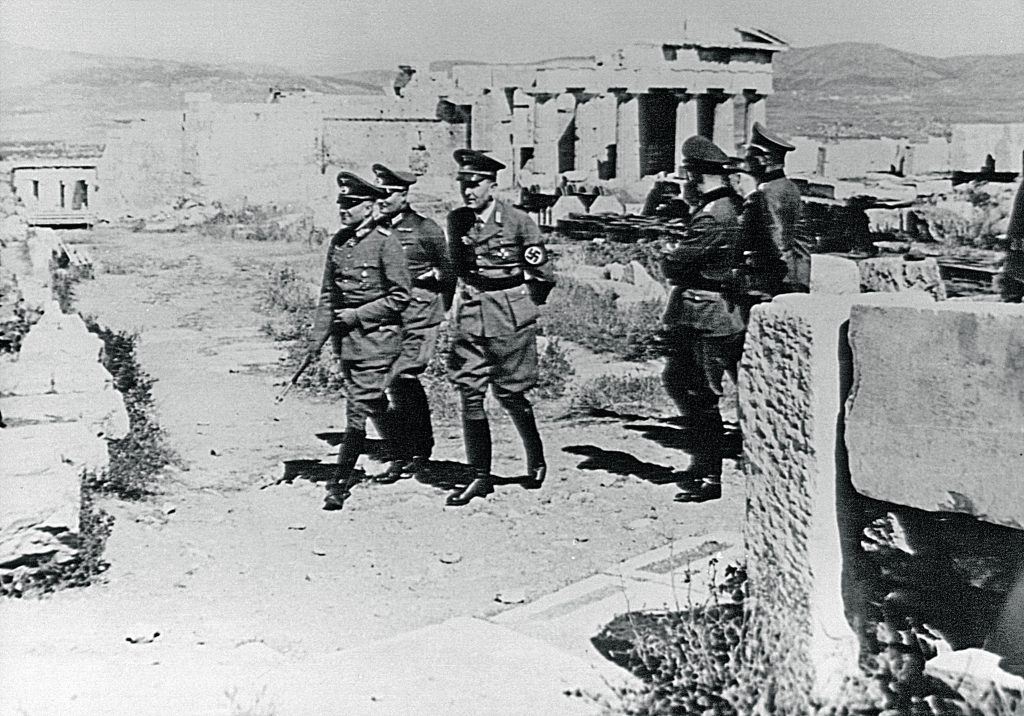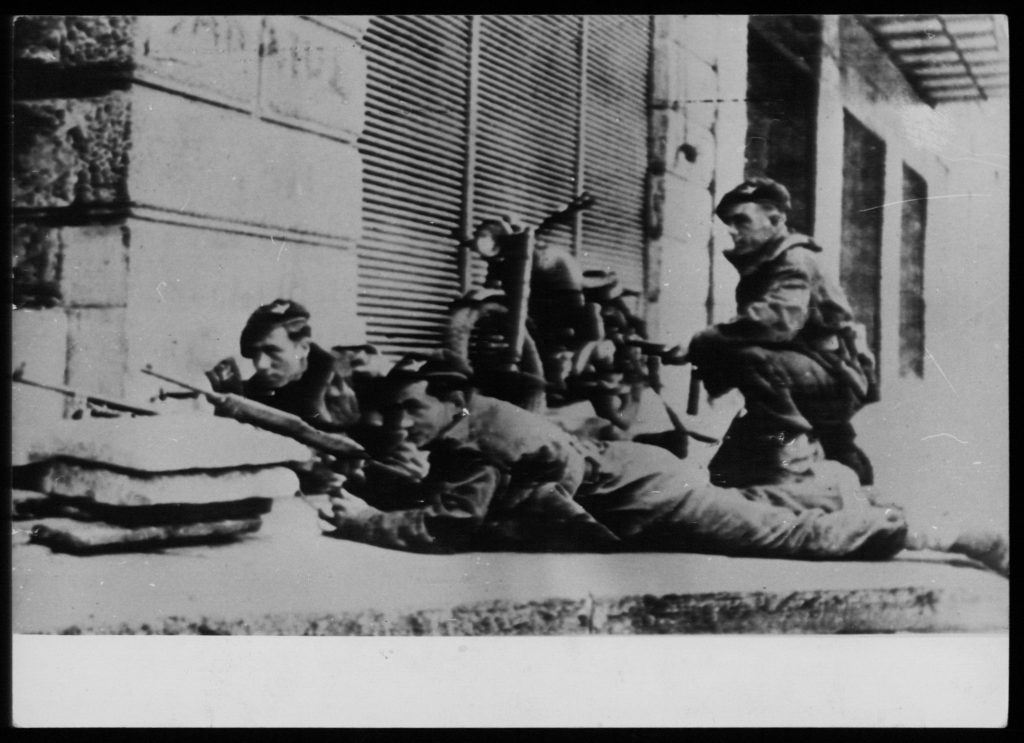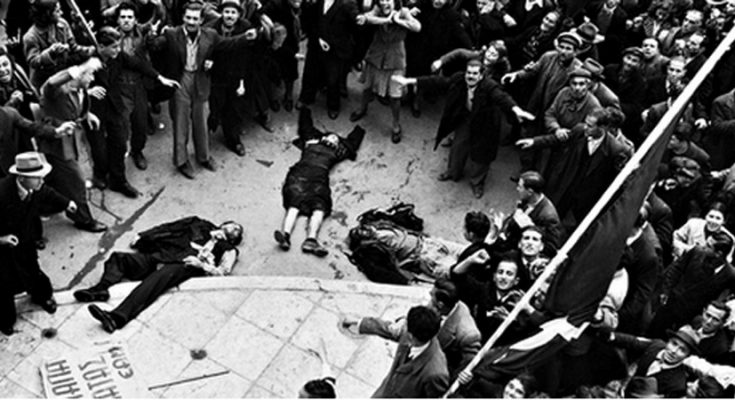Eighty years ago, on December 3, 1944, Athens erupted in violence that would change Greece’s course forever. The “December Events” (Dekemvriana), a bloody confrontation between the Greek People’s Liberation Army (ELAS) and Greek government forces backed by British troops, became the harbinger of the Greek Civil War.
Just weeks earlier, on October 12, 1944, Athens celebrated its liberation from Nazi occupation. The withdrawal of German forces marked the end of a dark chapter, but the joy was fleeting. Political and military rifts deepened as factions vied for control in a fragile post-war Greece.
The May 1944 Lebanon Conference had fostered hopes of unity with an agreement to form a government of national unity. However, unresolved issues like the disarmament of resistance forces, the restructuring of the national army, and the handling of Nazi collaborators quickly unraveled this fragile accord.

December 1: British General Ronald Scobie ordered the disarmament of resistance groups, sparking outrage. The EAM-affiliated ministers in the unity government resigned in protest.
December 2: EAM leaders reinstated the ELAS Central Committee and organized mass protests for December 3, despite Prime Minister Georgios Papandreou’s late reversal of their permit.
December 3: Thousands gathered at Syntagma Square, demanding justice and reform. Eyewitness accounts recall the tension as Greek police, backed by British patrols, monitored the growing crowd. Then, gunfire erupted. Protesters fell, some fatally wounded, as chaos engulfed the square. Journalist Kostas Galanopoulos later reflected, “It began with the first shots. Even now, we don’t know who fired first.” By day’s end, Athens was in turmoil, with clashes spreading citywide.
The December Events escalated into open warfare between ELAS and government forces. The British, fearing the rise of a communist-controlled Greece, reinforced their troops. Key battles, such as the December 6 fight at the Athens Gendarmerie Headquarters in Makrygianni, turned the tide against ELAS. British Prime Minister Winston Churchill intervened, instructing General Scobie to treat Athens “as a conquered city.” By mid-December, British forces had secured control, but at a heavy cost.

The December Events marked a grim turning point for Greece, plunging the country into a civil war that claimed 47,000 lives and scarred its political landscape for decades. Historian Angelos Th. Angelopoulos noted that the death toll from the December Events alone—17,000—exceeded Greek military casualties in the 1940–1941 Greco-Italian War. Ironically, the violence unfolded as global powers had already decided Greece’s post-war fate in the October 1944 Percentages Agreement, a pact written on a napkin that split influence in Greece between Britain and the Soviet Union.
The December Events are a stark reminder of how political polarization and external interference can fracture a nation. Eighty years on, they continue to offer lessons about the importance of reconciliation, unity, and the dangers of unchecked division.
*Inspired by Article by Yiannis Diamantis from To Vima’s historical archive



